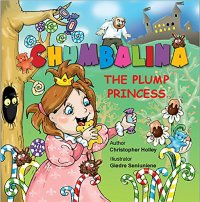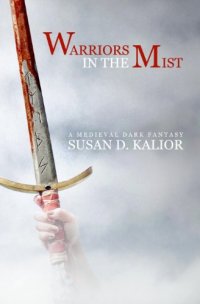From 1st February 2022 to 30th April 2022, the Bookangel Club ran a survey on Author Safety Issues: harassment, stalking, privacy and more. 979 authors have had their say, and we have spent the last three weeks going through the results. We would like to thank:
- the Insecure Writers’ Support Group
- the Crime Writers’ Association
- Alli
- and over forty small writers groups for their help.
We had hoped to get the Organisation for Transformative Works to help us reach fan fiction authors, but after they declined, /r/fanfiction stepped in, for which we are grateful. We also commissioned a control group through a separate service, due to concerns over the original figures. The group returned the same results as the main survey within 1% or 2%.
The basic results were disturbing.
65% of respondents thought that less than one quarter of authors were harassed.
72% of respondents had actually been harassed.
28% of all respondents had suffered serious safety issues, including physical threats and criminal action due to writing.
The 28% of serious threats include arson attacks, kidnapping attempts, assault or theft at signings, and going after author’s families in their day to day lives. Identity theft and credit card fraud were also reported.
Demographics
As the survey was anonymous we did not capture any demographics on the age or gender of the writer, instead focusing on how long they had been writing for, what they wrote and, if appropriate, what genre they wrote in.
The anonymity issue cut both ways: while it made it harder to validate individual responses, we had a number of respondents say that they would not have replied to this survey on Google or responded to a less anonymous survey because of a harassment risk we highlighted on the survey: software linking accounts.
Number of Works the author has available:
Works included anything from short stories to media articles, to novels and white papers.
| 0.5% ‚Äď Not Stated 25.6% ‚Äď 1-5 works |
47.6% ‚Äď 6-10 works 26.3% ‚Äď 11+ works |
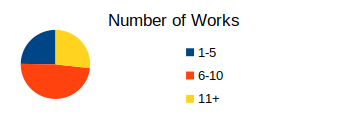
How long have they been writing for?
| 0.4% ‚Äď Not Stated, 3.9% ‚Äď Less than 1 year 22.2% ‚Äď 1 to 5 years |
42.2% ‚Äď 5 to 10 years 20.0% ‚Äď 10 to 20 years 11.3% ‚Äď 20 years or longer |
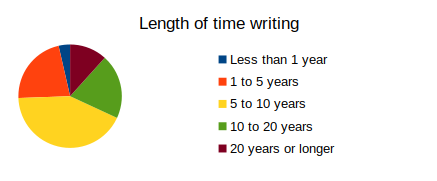
What do they write?
| 58.1% ‚Äď Only Original Fiction 16.9% ‚Äď Just Fan Fiction, 7.7% ‚Äď Original and Fan Fiction |
6.7% ‚Äď Original Fiction and Non-Fiction 5.6% ‚Äď Non-Fiction: 5.6% 5.0% ‚Äď Other |
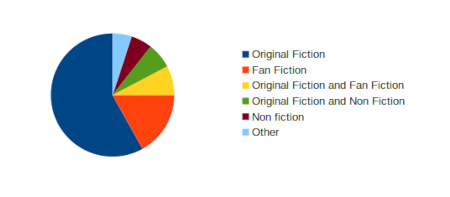
The Other section includes respondents which were too small to show on the graph at one percent or lower, or risked identification due to a sample size of one. Results under 1% include Poetry, people who wrote all the options above, who wrote Non-fiction and Fanfiction, and others.
Genre written in
When it came to genre, the majority of writers write in more than one. We had over a hundred respondents in each of our categories of Crime or Mystery, Romance or Erotica, Suspense or Thrillers, Non Fiction, Speculative Fiction, and Humour or Comedy.
Summary
With 979 authors across a wide range of genres and experience levels, this gives, we think, a good overview of writers across all stages of their careers. This should make the harassment figures as representative as we could find them.
Causes of Harassment
The survey was specifically exploring harassment due to writing and we asked respondents to exclude harassment for other reasons, such as their personal life or behaviour on social media (e.g. comments on Twitter). This resulted in certain authors contacting us separately to expand on what had happened, and prove it was because of their writing and nothing else. This data has been securely disposed of, due to the anonymity requirements.
For the 72% of respondents who had been harassed, we asked what they thought triggered the problems. The percentages below are not exclusionary: many authors were harassed for more than one reason, or the harassment spilled over from one cause into another.
The Genre the author wrote in was a common cause. The triggers of fan harassment reported at over 1% included:
- authors writing a pairing the fan did not like (often romance),
- killing off a character,
- featuring the ‚Äėwrong type of‚Äô LGBT+ pairing,
- stopping writing a series or having it cancelled,
- writing content the fan found disturbing or obscene (often horror authors)
3% of authors reported they were harassed due to their perceived characteristics. We say perceived characteristics as authors with multiple pen-names reported varying degrees of harassment depending on how the pen-names were perceived. Of those perceived characteristics, Gender (56%) was followed by Sexual Orientation (41%) and then the Culture of the author(40%) as reasons.
Some authors reported these characteristics were used as a way to harass them (e.g. trying to out an author in a conservative area, or insulting something in their writing by using racial or sexual slurs) rather than being the cause of it.
| 39% ‚Äď Genre Written In 56% ‚Äď Gender 40% ‚Äď Culture |
41% ‚Äď Sexual Orientation 35% ‚Äď Ethnic Origin |
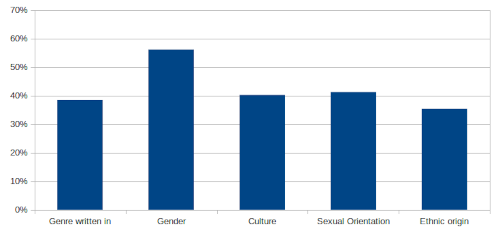
Many authors suggested that the harassment was simply because the harasser thought they had an excuse to harass someone. Given the range of characteristics for which authors were harassed, this seems to be accurate.
More concerning is the small sub-group of authors reporting being harassed by other authors, usually believed to be for monetary or readership reasons.
When it comes to harassment due to writing, the cause does seems to lie with the harasser, and not the author’s actions. This is important due to the amount of victim-blaming, something we will go onto later.
Perceptions of harassment
Overall, more respondents suffered serious safety issues than most authors thought were being harassed in total.
| 12.6% ‚Äď Rare 52.7% ‚Äď Occasional 22.7% ‚Äď Common |
7.1% ‚Äď Frequent 4.8% ‚Äď Almost every writer |

We did not investigate the reasons for the difference between how common harassment is and how common it is believed to be, as we did not know the gap between the two existed (or was this wide) until these results came in. However while many authors‚Äô groups we contacted did not respond, some declined with reasons, most notably: ‚Äúthis is not the view of writing we want for our audience‚ÄĚ.
If that is true for other groups, then it means that this is simply not being talked about among groups of writers. When those writers become one of the 72%, they think it is an outlier and may simply not discuss it or think it is their fault. This also means it is hard for them to find help.
We did investigate whether there was a correlation between how long an author had been writing and whether they had been harassed, and how long they had been writing and how common they believed the harassment to be. We did not find a direct correlation.
Views on the Frequency of Harassment broken down by Authors’ time writing:
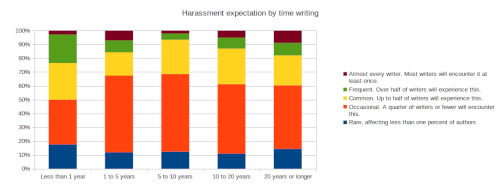
Actual Harassment of Authors compared to the time they had been writing:
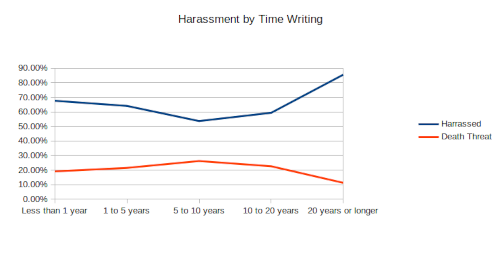
We had expected to find it to increase as authors wrote for longer but this was not born out by the figures, which may be because of our sample sizes.
Another common perception among the minority of authors who have not been harassed is the belief that ‚Äúit won‚Äôt happen to me‚ÄĚ, leading to people who suffered through this being blamed for not taking precautions. From several comments it seems to be part of a ‚Äújust world‚ÄĚ fallacy ‚Äď the belief that bad things only happen to people that deserve it.
There is also an element of victim-blaming. Several writers who had not been harassed expressed the view that authors should ‚Äútoughen up‚ÄĚ or that ‚Äústop writing and kill yourself‚ÄĚ is a funny comment. That was beautifully put down by an earlier respondent saying they thought it was funny until someone posted it through their letter box. (Permission to quote this was asked for and received).
Online Harassment
Most online harassment happened on platforms that were not anonymous. Social media that required some form of identification to sign up to, e.g. Facebook or Amazon, (39.5% of cases), and those the required phone verification (39.5%) were well ahead of the truly anonymous platforms at 19.7%. However one platform was specifically mentioned in comments as a problem: Goodreads. Despite not being on the survey itself, 2% of authors specifically mentioned behaviour on the platform and the platform’s response as an issue.
| 26.1% ‚Äď Pseudonymous social media 19.7% ‚Äď Anonymous media 13.4% ‚Äď Pseudonymous platforms |
27.5% ‚Äď Identifiable social media 12.0% ‚Äď User Identifiable Platforms |
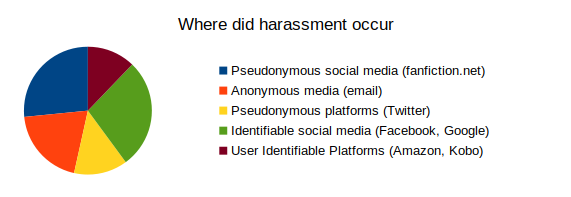
Online harassment generally took the form of unpleasant comments, bad reviews left across all an author’s work, or similar.
However many reports came in of more serious or even criminal activities including extortion or blackmail attempts. One specific scam that kept coming up was leaving multiple bad reviews and then sending the author a demand that they pay for them to be removed. There was also identity theft and fiscal crime: having obtained an author’s details, the harasser went after them financially.
In each case the common thread was that when reported to the platform or the authorities, the response from them was ineffective. This included platforms refusing to take action over problems ranging from threats to extortion, to the police stating they could not get involved because it was ‚Äėjust online‚Äô or that the person should have been ‚Äėnicer‚Äô to their stalker. That last issue affected both male and female respondents.
Another concern was DMCA requiring authors to disclose real names and addresses to people who had already committed plagiarism or copyright violations, and were often using false identities themselves.
Serious Safety Issues
The 28% of authors who reported more severe harassment had experienced (at over 1% of respondents):
- Arson attempts
- Theft
- Threats delivered to homes or places of work.
- Family members being approached
- Attempted Kidnap
- Physical assault
- Identity theft
- Attack on credit rating
- Active attempt on life using third parties
- Romantic obsession including forced marriage and elopement reported by both male and female authors
Please note that these had all occurred to multiple authors, so they cannot be identified. Attempted kidnap and physical or verbal assault were rarer, but still sufficient that they cannot be tracked back to one respondent.
These generally occurred offline, at locations such as the author’s home address or at public locations such as book signings. The attack on credit ratings e.g. fraudulently applying for credit cards, is a notable exception.
Many of the affected authors reported involving the authorities, but that this was not always effective in protecting them or resolving the situation. Some were driven to move houses or change addresses to try to protect themselves.
Precautions and Privacy
Despite so many respondents thinking it was rare, many of whom were being harassed while thinking they were one of the few, 60% of authors took precautions. The fact 73% were harassed shows both that these precautions were needed and, that for up to 40% of authors, these precautions were ineffective.
The most common precaution was to separate writing and personal identity, and leave social media. However several reported harassment on platforms that they were not on, by people using those platforms to organise campaigns or start rumours that they had no way to reply to.
26% of authors had problems with sites linking accounts, breaching privacy. There were also stories of agents, publishers, and platforms revealing authors’ real names publicly despite the use of pseudonyms and business identities. 15% of authors stated the use of real names for contracts was their major concern.
Regulatory issues also proved to be a major privacy concern: 31% of respondents had issues with Paypal, or did not use it due to reports of this, and it was repeatedly stated that harassers used Paypal invoices to trace authors’ real identities behind business accounts.
This appears to be a conflict between Know Your Customer regulations and online safety: we also had authors report readers had clawed back donations or sales because the invoice name did not match their penname. This is a problem in the UK because of the differences between DBA (Doing Business As) rules in the US where Paypal is based, and small company regulation in the UK where real names are required.
8% said the W8-Ben used by the IRS had caused privacy problems internationally. Multiple authors said their identities were tracked down by their harasser through other publicly available government documentation, e.g. corporate records or tax documents such as Companies House.
| 26.4% ‚Äď Sites Linking Account 8.2% ‚Äď W8-BEN or other official government form |
31.8% ‚Äď Know Your Customer regulations 15.0% ‚Äď Use of real names for contract purposes |
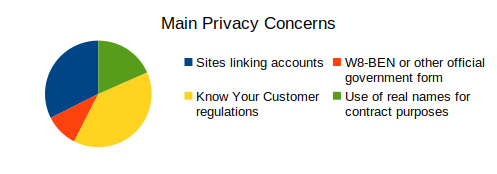
Career Impact
Financially this has a huge effect: 15% of authors have turned down or not applied for grants due to this issue. 5% of authors have turned down publishing deals. Another 15% have stated that their major privacy concern is the use of real names for contracts: borne out by the stories from other respondents of publishers, agents, and publishing platforms, revealing authors’ real names publicly despite the use of pseudonyms and business identities.
The majority of privacy issues apply when an author tries to make money from their work. Banking regulation exposes real identities to prevent crime, but also exposes real identities to the people who want to commit crimes. It is a catch-22 situation.
It was not possible to quantify how much financial loss authors had suffered, and this was not something we investigated within the scope of this survey. We would strongly suggest a larger organisation with more resources should investigate this issue.
Social Media Exposure
At the current time, reducing social media seems to be one of the ways to reduce harassment, but it cannot prevent it as a significant amount of harassment occurs on the platforms where books are sold and published.
Separating social media and real life, or simply not having social media, is not sufficient protection. We had authors who did not use social media say that it was used to co-ordinate harassment against them. Authors had used pen-names and other means to obscure their identity but in many cases the harassers had cut through this by using government records such as corporation requested owners, platforms disclosing real names despite pen-names and imprints being used to publish or by disclosure from their publisher or agent.
What do authors suggest should be done?
Better protection for personal data was a common request and there is a genuine sentiment that allowing contracts to be signed with pseudonyms, and not using the author’s real name in-house would do a lot to reduce the issue, giving pen-names legal recognition and protection in a form not accessible to the general public.
Others requested that publishers should add privacy clauses or restrict who can access the name behind an author’s pen-name. We had reports that such disclosures were defended for the purpose of marketing despite being a breach of confidentiality.
However a nearly universal sentiment, both from authors who had and had not been harassed, was that when harassment occurs a more effective response is needed from both platforms and the authorities.
Conclusions
In conclusion, this survey shows there is a deep-seated problem with safety and privacy in writing that only gets worse as people try to move into publishing their work professionally. Increasing regulation and the trend to tie all data to one online identity is making it far easier to harass people than it was twenty years ago.
There is a lack of awareness of how severe the issue is, driven by both denial, and difficulty discussing it. A reluctance to acknowledge the issue by many writers and writing organisations limited our sample size, specifically:
Authors are being told to live with it.
We didn’t hear from the ones that didn’t.
We heard from precisely two people who quit writing because of these problems, but we suspect the number who did is far larger, and we had no way to reach them.
The other single most important thing an author can do is believe another author when they say this has happened because from these results, this is far more about the fan who chooses to harass than their target than anything the victim has done wrong.
Final Note
This has thrown up some disturbing issues, and we would very much hope that larger groups with further resources can take this further, e.g. to investigate the problem, push for improvements in the way this cases are handled, or create guidelines for protection for author privacy.
We would like to thank all the groups that took part and everyone who had their say. It is not a perfect survey ‚Äď we are a bookclub, not a statistics group ‚Äď but if it gets people talking about harassment, the figures show that it is a discussion that needs to be had.
For anyone who did not take the survey and is curious, they can view it here. Author Safety Survey. We are not processing further results, but will store them under the anonymous terms as before.
If there are any other figures you would be interested in seeing, which we have not extracted, please contact us.









